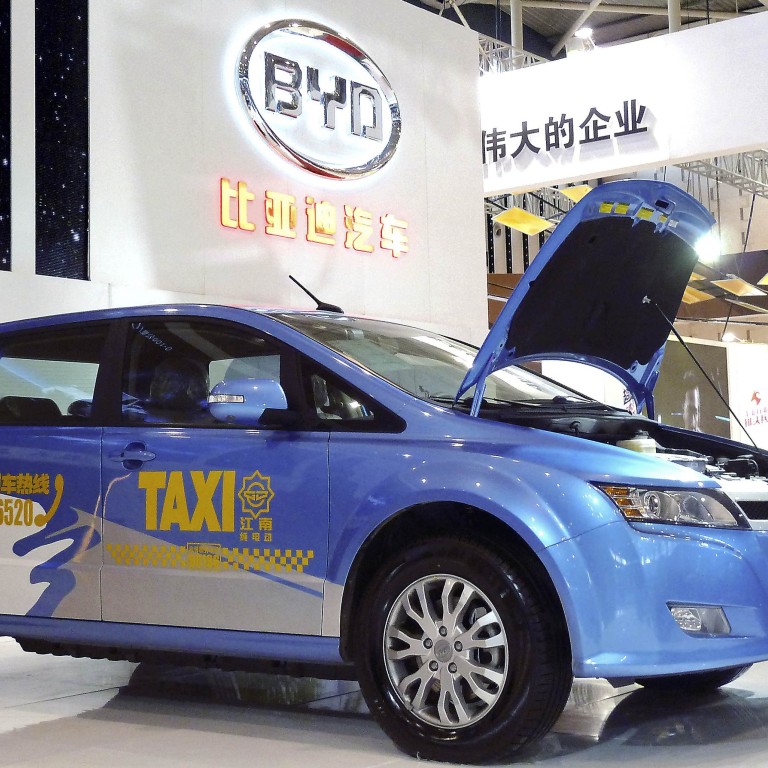
BYD pins hopes on new-energy vehicles after profit drops
Chinese carmaker eyes new-energy vehicle segment for future revenue growth after reporting worse-than-expected first-half results
BYD, the Chinese carmaker backed by Warren Buffett, expects performance to improve in the fourth quarter, boosted by sales of new-energy vehicles (NEVs), after reporting worse-than-expected first-half results and issuing a warning on third-quarter profit.

Revenue contribution from NEV sales could be increased to between 15 per cent and 20 per cent in the second half from about 10 per cent in the first half, Wang told reporters in Hong Kong at a post-results press conference yesterday.
BYD reported on Sunday a 15.5 per cent year-on-year drop in net profit in the first half to 360.7 million yuan (HK$453.5 million), which fell short of an average estimate of 400 million yuan by analysts polled by Reuters.
The company also forecast a decline of between 11.7 per cent and 22.5 per cent in earnings for the first nine months of this year to between 361 million yuan and 411 million yuan. It means that, in the worst scenario, the carmaker expects no profit contribution from the July-September quarter.
First-half earnings were dragged down by weakness in the vehicle business following a decline in the market share of local car brands in the traditional vehicle segment amid intense competition, the company said. However, revenue from vehicles powered by new energy soared 12 times to 2.7 billion yuan.
BYD's stock fell as much as 8.7 per cent to HK$44.90 in morning trading yesterday on the disappointing results and profit warning but bounced back in the afternoon to close at HK$50.30, an increase of 2.24 per cent.
"The third quarter is a traditionally low season for vehicle sales, but we expect a better performance in the fourth quarter," Wang said. "We will step up effort in new-energy vehicle sales in the fourth quarter, launching more new models."
In addition to its plug-in hybrid model Qin, which was launched in December, the company plans to launch a plug-in hybrid sport utility vehicle, Tang, and its first purely electric car, Denza, jointly developed with German carmaker Daimler, in the second half.
Wang said BYD would expand its production capacity, which at present cannot meet the strong demand for the Qin.
Monthly capacity for the model could be increased to more than 3,000 units next year from 1,000 to 1,500 units at present, while the production capacity for the Tang model is expected to expand to 5,000 units from 3,000 units.
Castor Pang, head of research at brokerage firm Core Pacific-Yamaichi, is upbeat on the carmaker because of the increasing demand for NEVs, driven by government incentives.
However, the positive impact of the government's measures might not be reflected in second-half sales, as it would take time for them to take effect, Pang said.
"The weakness in the traditional automobile business will likely continue, as competition is fierce," he said.
